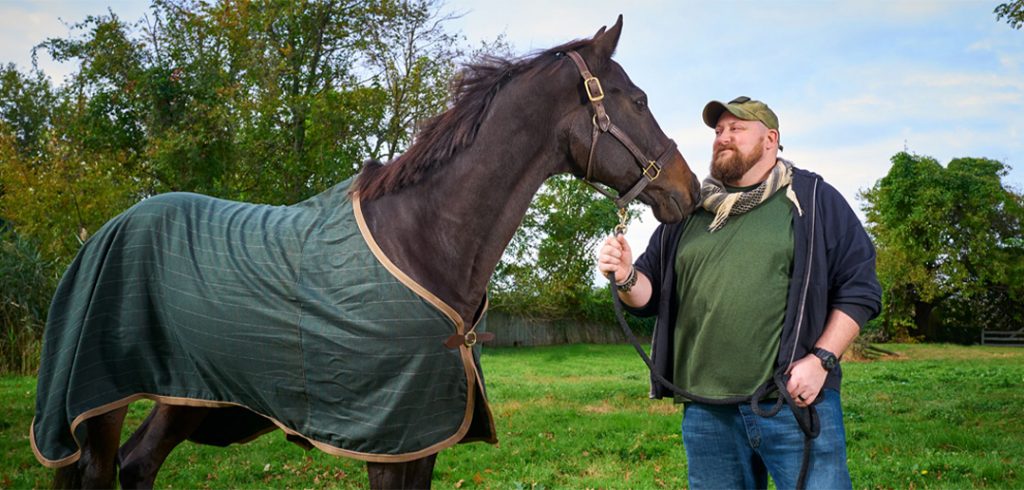Those were the words that Good Morning America co-host Michael Strahan said to Matthew Ryba, PCS ’15, in a surprise tribute to him on the ABC program on Veterans Day.
Ryba is a Marine Corps veteran of the wars in Iraq and Afghanistan who now serves as the director of community outreach and education for NewYork-Presbyterian’s Military Family Wellness Center.
“You protected lives, you saved lives, and now you’re changing lives,” Strahan continued, before playing a video tribute featuring Ryba’s wife, friends, colleagues, and fellow veterans—as well as a separate message from one of Ryba’s favorite NFL players, Rob Gronkowski.
Ryba’s work centers on helping his fellow veterans with their mental health, especially the lasting effects of PTSD. He recently co-authored a paper titled “Neural changes following equine-assisted therapy for posttraumatic stress disorder: A longitudinal multimodal imaging study,” which looked at how time around horses can help veterans with PTSD. It came out of the Man O’ War Project, led by co-directors Prudence Fisher, Ph.D., and Yuval Neria, Ph.D., who is also co-director of the Military Family Wellness Center.
For the project, which took place at the Bergen Equestrian Center in northern New Jersey, Ryba helped recruit 63 veterans who had been diagnosed with PTSD. They were brought to the equestrian center for eight weekly, 90-minute sessions in the summer of 2019, and there, they groomed the horses, led them, and participated in trust-building exercises. Mental health professionals evaluated the trial participants, who also received brain scans before and after the sessions.
Their results, published in the Journal of Clinical Psychiatry, found that half of the patients recovered from their PTSD and continued to show improvement months later. According to an article in NewYork-Presbyterian’s Health Matters, the veterans “reported fewer feelings of depression, distance from others, inability to sleep, anger, and suicidal thoughts,” and “less hypervigilance, nightmares, and feelings of needing to be alert and on guard.” The researchers also found structural and functional changes in the brain.
“Horses almost mirror the emotions of the human that they are with,” Ryba told Health Matters. “So if you walk up to a horse and you’re scared to touch them and show all this fear, they sense that and react with a fear response. Seeing your own fear mirrored in another animal helps you make connections with what’s going on inside you, and make internal adjustments like, ‘If I calm down, the animal will calm down.’”
The team is now piloting a similar study at the center for adolescents with PTSD, as well planning for a larger randomized trial examining the effects of equine therapy on PTSD.
Ryba, who dealt with dozens of his fellow service members dying during his time in the Marine Corps, told Health Matters, “If I’m not helping this population, then I am not doing the right kind of work.”

